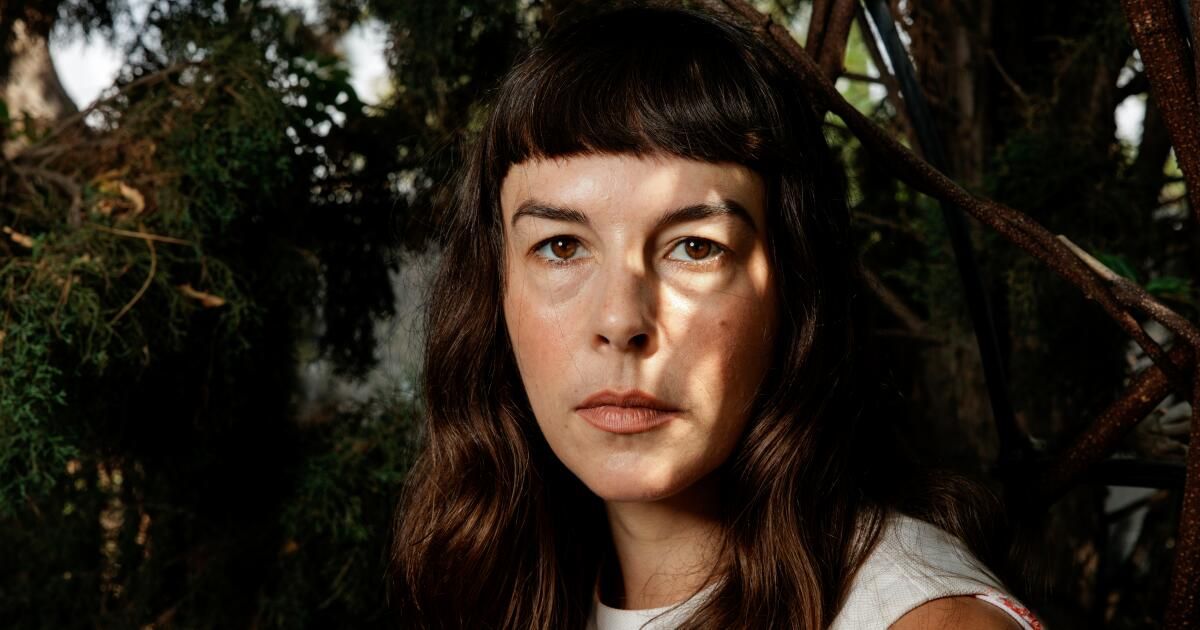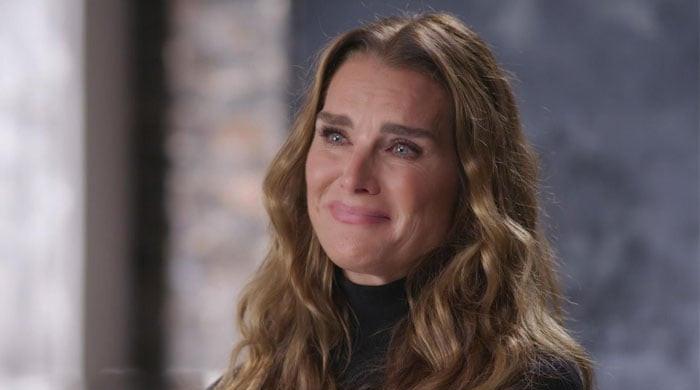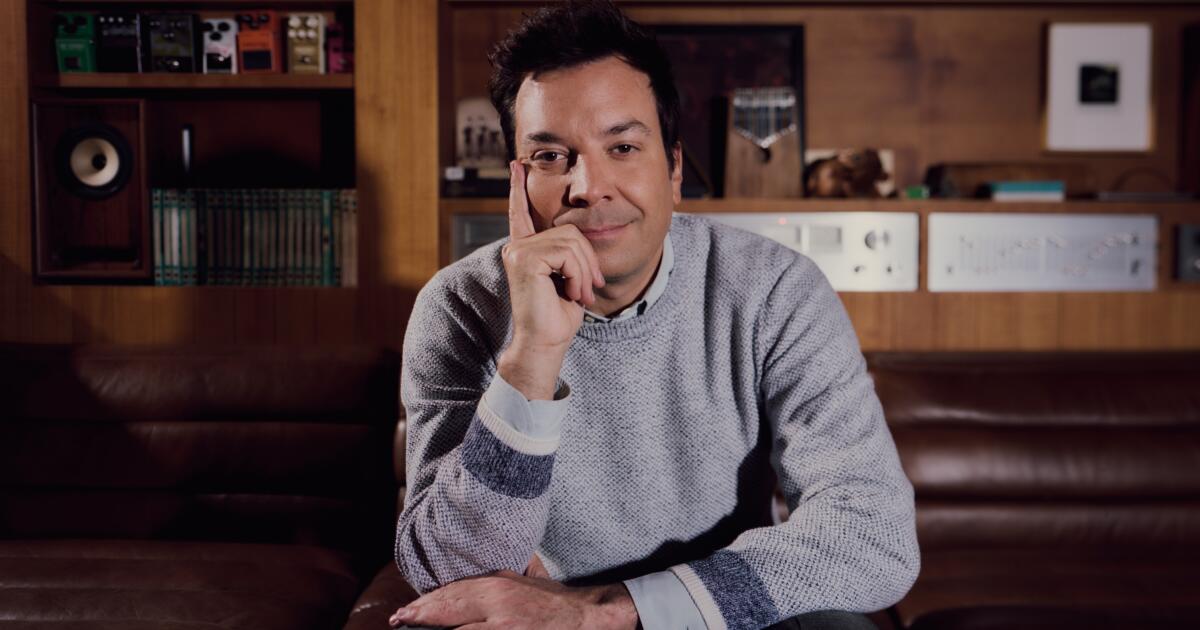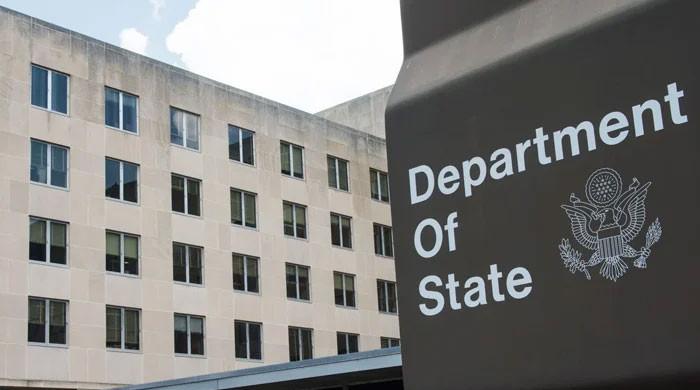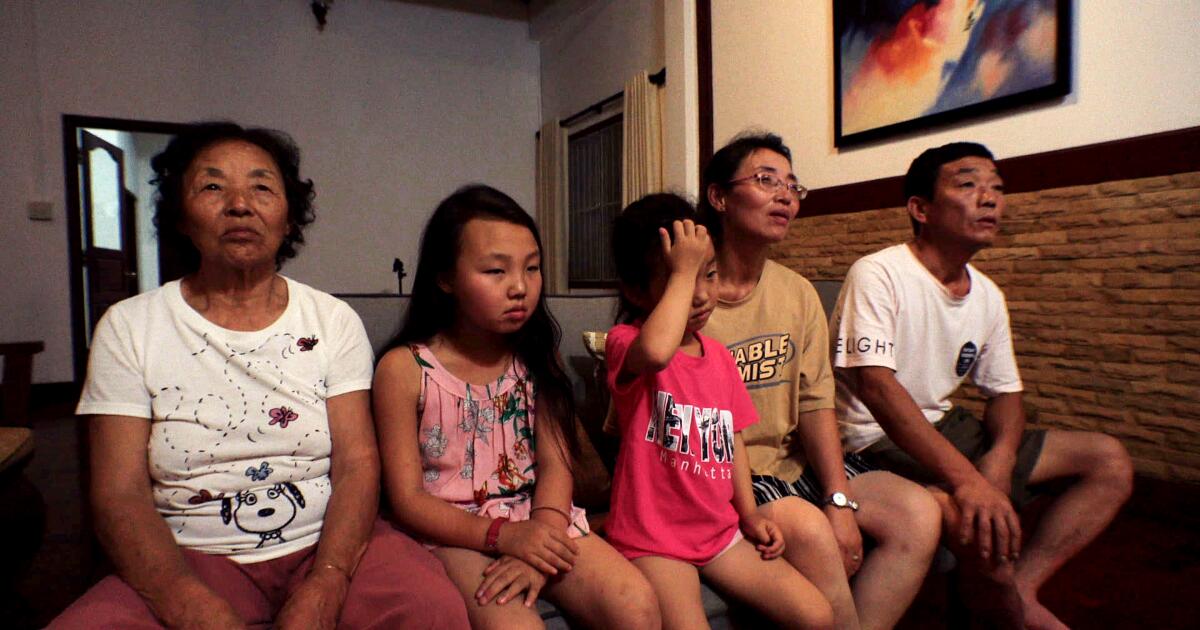A little over a year ago, Madi Díaz lay in bed in an apartment near Dodger Stadium sweating out a gnarly case of COVID-19.
The Nashville-based singer-songwriter had traveled to Los Angeles to record the follow-up to her album “Weird Faith,” which came out in early 2024 and would go on to earn two Grammy nominations, including one for a wonderfully soulful duet with her friend Kacey Musgraves. But after three or four days of work in the studio, Diaz fell ill just as the Dodgers were battling the Mets in last October's National League Championship Series.
“I could literally see the lights of the stadium: there were drones everywhere and people honking and setting things on fire,” he remembers. “I was like, Why, Los Angeles? because?”
His suffering in a city he once called home was worth it: “Fatal Optimist,” the LP Díaz finally completed in time to release this month, is one of the most gripping of 2025: a bravely stripped-down set of songs about heartbreak and renewal arranged for little more than Díaz's confident voice and folky acoustic guitar.
In the album's first chapter, “Hope Less,” she asks how far she would be willing to go to adapt to a lover's abandonment; “Good Liar” examines the self-deception necessary to continue holding on. However, Díaz also thinks about the damage he has caused, as in “Flirting” (“I can't change what happened, the moment was what it was / Nothing for me, something for you”).
And then there's the heartbreaking “Heavy Metal,” in which she acknowledges that enduring the pain of a breakup has prepared her to face the inevitability of the next.
“On this record I face myself and say, 'I have to stay in my body for this whole song,'” Díaz, 39, says on a recent afternoon during a trip back to Los Angeles.
What makes the music's nonchalance even more notable is that “Fatal Optimist” arrives after more than a decade and a half of a twisty career that might have left Diaz more intimidated than she seems here.
Beyond making his own albums (“Fatal Optimist” is his sixth since moving to Nashville in 2008), he has written songs for commercials and television shows and for other artists, including Maren Morris and Little Big Town; He has sung backup for Miranda Lambert and Parker McCollum and even played guitar in Harry Styles' band during the 2023 tour.
Yet on a tender new song like “Feel Something,” about longing “to be someone who doesn’t know your middle name,” Díaz’s singing reveals every bruise.
“Music is a life force for Madi,” says Bethany Cosentino, the Best Coast frontwoman who tapped Díaz as a songwriting partner for her 2023 solo album, “Natural Disaster.” “She has to do it, and it's so authentic and so real and so raw because it doesn't come from this place of 'Well, I guess I have to make another record.' “
“If you don't put those emotions somewhere,” Cosentino adds, “I think you'll implode.”
Which doesn't mean that releasing an album as vulnerable as “Fatal Optimist” hasn't been scary.
“I was going to say it's like the emperor's new clothes,” Díaz says, laughing over coffee in Griffith Park. “But I know “I'm not wearing any clothes.” Dressed in shorts and a jean shirt, with her hair tied up under a cap, she sits at a picnic table outside a cafe she liked when she lived in Los Angeles from 2012 to 2017.
“For a second, I thought, Damn, I wish I'd brought my hiking shoes; I could have gone to the top,” he says. “I absolutely would have done that as my 28-year-old masochistic self. Hike in the heat of the day? Let's go.”
Diaz points to a couple of touchstones for her LP's stripped-down approach, among them Patty Griffin's “Living With Ghosts” – “a star in Orion's Belt,” as she puts it – and “obviously Joni Mitchell's 'Blue',” she says. “That's just a no-brainer.”
Like Mitchell, Díaz achieves a clarity of thought in his songs that only intensifies the pain; Also like Mitchell (not to mention Taylor Swift), she can describe her partner's flaws with absolute precision.
“Some 'sorrys' are so selfish / And you just act like you can't help it,” she sings on “Why'd You Have to Bring Me Flowers,” one of the few she jokingly calls “folk diss tracks” on “Fatal Optimist.” It continues: “Bulls: they smile, in denial / We've been around the block / We've been on a downward spiral.”
“There are definitely a couple of songs on this record where I felt sad while writing them,” he says. “Then when I finished, I thought: It had to be done.” She smiles. “They're tough,” he says of his exes. “They'll be fine.”
When asked if any of her songs express her feelings in a way she wasn't able to with the ex in question, she nods.
“I'd say I could get halfway there in real life,” he says. “It's almost like I couldn't finish the thought within the relationship, and that was the sign that we couldn't move forward. Or that Yo “I couldn’t move on.”
Has writing about love taught you anything about yourself and what you want?
“I travel a lot, I'm everywhere,” he says. “And I really like to come and go as I want. But it's funny: In retrospect, I think maybe I was looking for a relationship that was a little more traditional, although I don't know if I can really be that way. So it's weird considering that.”

Madi Díaz in Pasadena.
(Annie Noelker / for The Times)
Díaz grew up home-schooled in a Quaker family in rural Pennsylvania and learned to play the piano and guitar when she was young; As a teenager, her talent took her to Philadelphia's Paul Green School of Rock, whose founder was later accused of abuse and sexual misconduct by dozens of former students, including Diaz. (“It was a really toxic place,” he told the New York Times.)
She studied at Berklee College of Music in Boston before dropping out and heading to Nashville, where she began making a name for herself as a singer-songwriter operating at the intersection of country and pop. After a few years of fruitful work, he came to Los Angeles to “see how high the ceiling was,” he says, and quickly fell in with a group of musician friends.
“We loved going to the Smog Cutter,” he says of the closed Silver Lake dive bar, “to drink a couple of Bud Lights and sing Mariah Carey really bad.”
Díaz was making money writing songs (Connie Britton sang one of his songs on the ABC soap opera series “Nashville”), but he struggled to achieve the kind of breakout he sought as an artist. “It turned out the ceiling was pretty high,” he says now, laughing.
Along with professional frustrations came “the nuclear explosion of a breakup” with another composer, Teddy Geiger. “They were going through a big identity change,” Diaz says of Geiger, who came out as transgender, “and we were working in the same industry, and I felt like there was no place for me here.”
Díaz returned to Nashville, which did not immediately boost his career. “I was a waitress at the Wilburn Street Tavern and made Jack White nachos,” she recalls. “He would never remember this, but Yo remember. I thought: This is my life now.”
In fact, her acclaimed 2021 album “History of a Feeling,” with songs inspired by the complicated dynamics of her and Geiger's split, finally attracted the kind of attention she had been working for. He signed to the respected indie label Anti- (whose other acts include Waxahatchee and MJ Lenderman) and landed the tour gig with Styles after he contacted him via DM; He also became a sought-after presence in Nashville's tight-knit songwriting scene.
“I don't know anyone in town who doesn't love Madi,” says Little Big Town's Karen Fairchild, who adds that Diaz “has instincts for melodies that are all her own. Sometimes I think, 'How's that going to fit into the phrasing?' But she always does.”
For “Fatal Optimist,” Díaz did an initial test by recording her songs with a full band before deciding they required the minimalist setup she chose with her co-producer, Gabe Wax, at their studio in Burbank.
“We did it with no headphones, no click track, no grid,” he says. “It speeds up and slows down, and tunes in and out of tune like instruments do.” (An unlikely sonic inspiration was a collection of singles by pioneering riot grrrl band Bikini Kill, which he hailed for their “still-seeming-it-finds-out energy.”)
Diaz describes herself as a perfectionist, but says that “Fatal Optimist” was about “trying to find our way through the cracks of imperfection to break through the ground and sit on the surface. I feel very proud that we let it live there.”
She will be touring behind the album this fall, playing solo shows, including a Nov. 20 date at the Highland Park Ebell Club, aiming to preserve the album's solo vibe.
“I don't know if I really thought it through when I made the decision,” he says, laughing.
No matter how good she is on her own, and despite all the torment she knows another relationship will likely bring her, “I'm a staunch loyalist,” Díaz says. “I'm still looking for connection more than anything else.”

